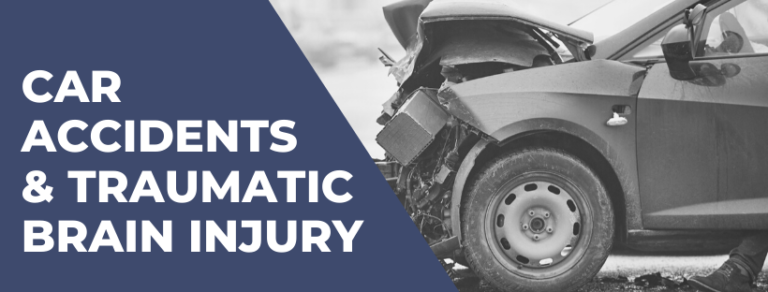Updated July 2025
Suffering severe injuries following a car accident can take a toll on victims as they have to worry about future medical expenses, lost wages, and damages to their vehicle or other personal property. Accepting the settlement offer presented to you by an insurance adjuster can be incredibly tempting as you figure it’ll cover your immediate medical expenses and tide you over until you can return to work. You may also feel pressured to accept the first settlement offer, especially if the insurance adjuster starts telling horror stories about claims taking years to settle or not settling at all.
The issue with quickly accepting a settlement offer is that you likely haven’t had a chance to speak to a car accident lawyer who can assist you in seeking compensation for the full extent of your injuries. What may seem like an acceptable offer at first could be much less than what you deserve, and over the long term, it may end up being substantially less than what you need to cover your lost wages and medical expenses. We’ll guide you through what happens when you reject an insurance offer and best practices for securing maximum compensation.
Negotiating a Fair Settlement When the Car Insurance Settlement Offer Is Too Low
If your insurance settlement offer is too low, you can negotiate for a better offer with the assistance of our Upstate South Carolina personal injury attorneys. Before negotiating a new settlement offer, it’s helpful to have a rough idea of how much you’d be willing to accept. Again, this should be realistic based on the expenses you’ve incurred and the overall impact of your injuries. If you have a permanent or long-term injury that needs ongoing treatment, such as physical therapy, you may be entitled to recover future losses.
Our personal injury attorneys at The Clardy Law Firm will consult with medical experts to document your medical records and your current and future medical expenses as the basis for your settlement negotiations. We’ll be able to give you a realistic settlement range based on the strength of your case and our experience securing successful payouts for our clients. When negotiating with an adjuster, we use this ballpark range to gauge whether you’re on the right track.
Damages That Can Be Recovered in an Auto Accident Injury Claim
When you negotiate after rejecting an initial insurance settlement offer, it is important to determine who was at fault for the accident. South Carolina follows a modified comparative negligence law that determines the amount a plaintiff can recover from a personal injury case as a result of a motor vehicle accident.
Under South Carolina Code 15-38-15, the victim can receive damage awards for an injury, even if they were partly at fault. However, the victim must be found to be 50% or less at fault, or they are not entitled to receive any compensation. The compensation award is reduced based on the victim’s percentage of fault. It’s imperative never to accept the first insurance settlement offer because taking the time to prove negligence or fault may lead to a higher award amount.
Your settlement offer may increase as the at-fault person may be held liable for any injuries and damages sustained. Compensation is awarded in the form of economic damages, non-economic damages, and punitive damages.
Economic damages are hard, quantifiable costs, such as past and future medical expenses (including fees for scans, tests, and other immediate treatment, surgery, medication, and travel to and from the hospital) and past and future lost income. Evidence is critical to getting a fair settlement offer, so you should keep receipts and records of the costs and losses you’ve incurred after your accident.
Common economic damages awarded in motor accidents include:
- medical bills,
- rehabilitation services,
- lost wages, and
- property damage.
Non-economic damages compensate you for pain and suffering, loss of enjoyment of life, and mental anguish. These are harder to quantify, as it’s not easy to put a price on something so subjective.
Non-economic damages following a car accident can include compensation for:
- disfigurement,
- inability to participate in activities that were previously enjoyed, and
- cognitive and behavioral changes.
Litigation as a Last Resort
Only a small percentage of personal injury cases end up in court, but if it’s a step you want to take, our motor vehicle accident attorneys are determined to fight on your behalf. Most claims settle way in advance of any consideration of going to trial. But sometimes, insurance companies are stubborn and won’t deviate from a car insurance settlement offer that is far too low.
The statute of limitations for personal injury claims in South Carolina is three years, and it can take months or years to gather evidence and prepare for a trial within that timeframe. Our personal injury lawyers seek alternative methods to litigation in the form of additional negotiations and mediation to increase your likelihood of success in receiving a suitable settlement offer. If we are unable to reach a settlement, however, our experienced trial lawyers can assist you with litigating your case.
Consult with Our Car Accident Lawyers in South Carolina
An experienced personal injury lawyer with a track record of securing successful car accident settlements will understand what you need to get a fair insurance settlement offer.
Our personal injury attorneys are proficient negotiators who know when a car insurance settlement offer is too low and will fight to secure you fair compensation. If negotiations are unsuccessful and your insurance settlement is still less than you deserve, we can assess the strength of your claim and prepare your case for trial. During the personal injury claims process, our professional lawyers are well-versed in instances where an insurance firm will offer an initial insurance settlement that is not reflective of the events and their repercussions.
This is where we go to work on your behalf, compiling everything needed to best present the case in its true light, giving you a huge leg-up on the journey toward the compensation you deserve. One thing to remember after rejecting an initial insurance settlement offer is that our reliable attorneys are there to support you. As your case plays out, we’ll be with you every step of the way, taking the stress off your plate and fighting to get you the compensation you deserve so that you can focus on your recovery.
Maximize Your Insurance Settlement Offer
If you’ve experienced a car accident in South Carolina and are unsure about accepting the compensation amount from the insurance company, take a moment to think things through. Even if the accident has caused great distress and you’re eager to resolve things quickly, there is a case for seeking a higher settlement offer, especially if this settlement offer isn’t as much as you had expected.
These first offers should be thoroughly considered, as insurance settlement offers are very nuanced. If you believe you’re entitled to more than the first offer you receive, make sure you get professional advice from our accident injury lawyers.
We want to ensure that the aspects affecting the amount of your settlement have been fully considered and that the long-term effects of the car accident have been taken into account by the insurance company.
Call us at 864-233-8888 or reach out via our contact form to receive a free consultation today.





